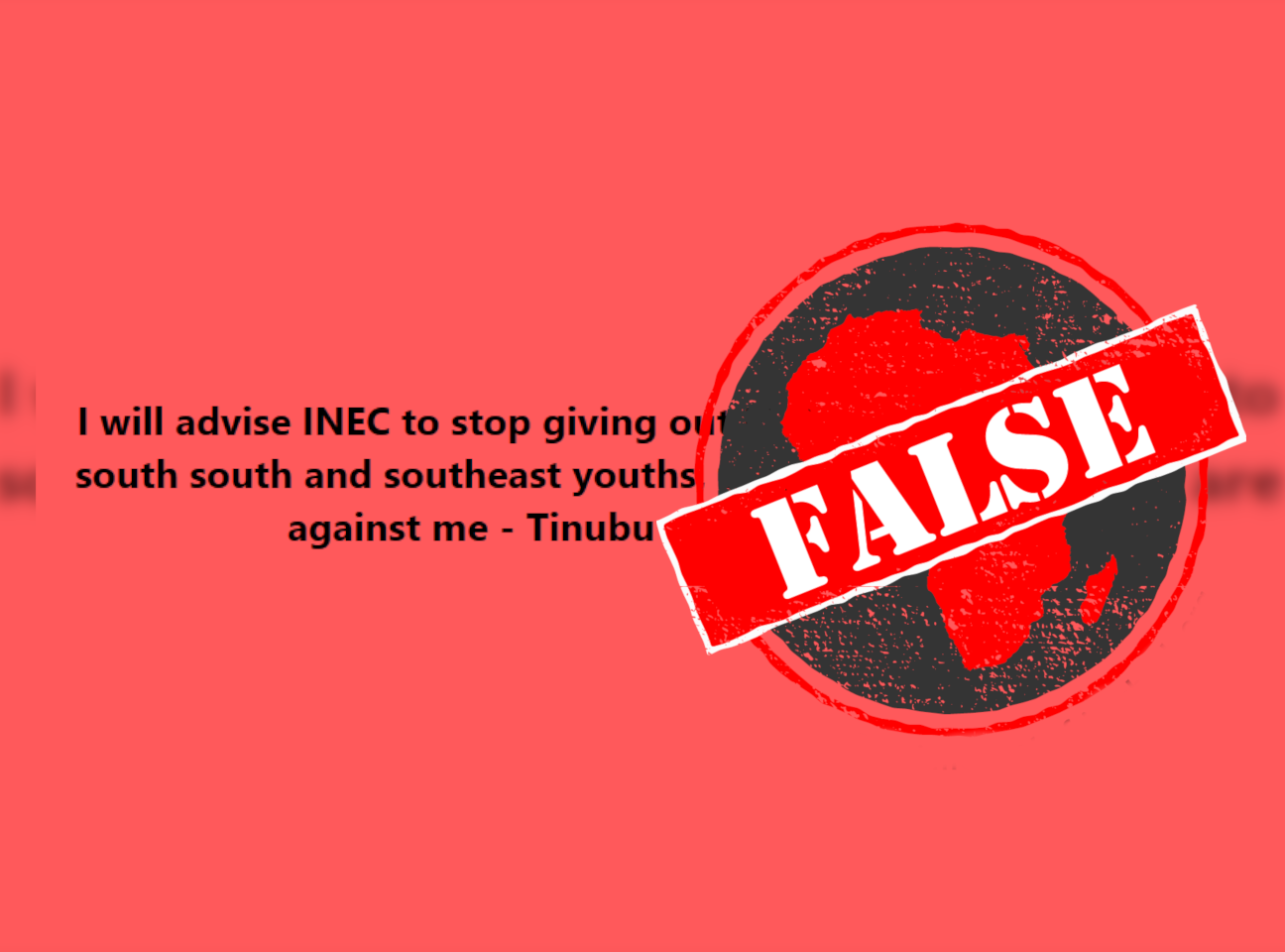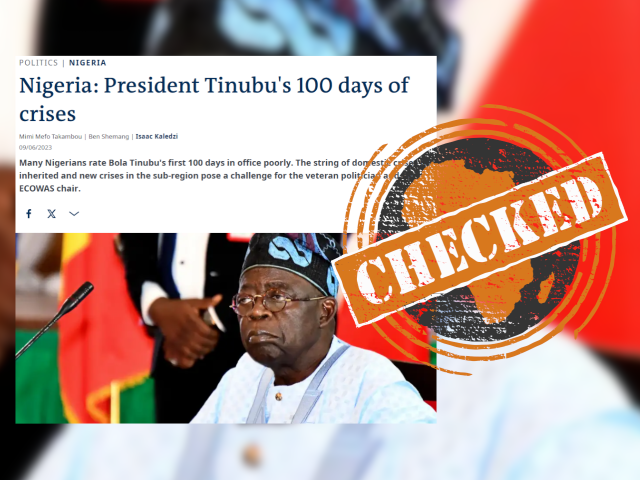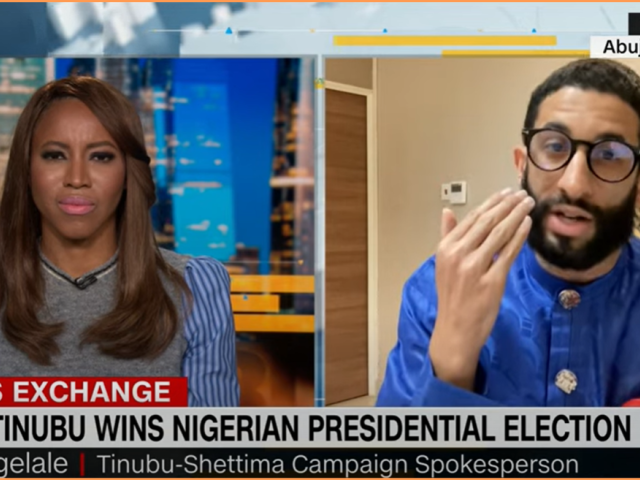IN SHORT: Upcoming general elections in Nigeria have led to a rise in misinformation circulating in the country, including fabricated quotes made to look like they are from prominent politicians. A quote attributed to presidential candidate Bola Tinubu, about asking the electoral commission to stop giving out voters’ cards, should be ignored.
“I will advise INEC to stop giving out PVC to southsouth and southeast youths, they are against me,” reads a quote attributed to Bola Tinubu on Facebook, published on 10 January 2023.
Tinubu is a Nigerian politician and the presidential candidate for the ruling All Progressives Congress. Nigeria is set to hold general elections in February.
Nigeria’s Independent National Electoral Commission, or Inec, oversees elections in the country.
The permanent voters card (PVC) enables registered voters to vote in the general elections.
The six member states in the “south-south” geographical region are Akwa Ibom, Cross River, Delta, Edo, Rivers and Bayelsa states.
Southeastern Nigeria is made up of five states: Abia, Anambra, Ebonyi, Enugu and Imo.
But did Tinubu make this comment? We checked.

No evidence for Tinubu quote
The original post doesn’t give details of where or when Tinubu is meant to have made the comment. This lack of particulars is a red flag that something circulating on social media is likely to have been fabricated.
There have been no reports in the mainstream media of Tinubu saying anything like this. The last time Tinubu and Inec had a back-and-forth reported in the media was in January 2022, when Tinubu claimed that PVCs had expired, which Inec refuted.
If Tinubu had made this newer statement it would have been reported by credible news organisations.
We found no evidence Tinubu said that Inec should stop giving out voters’ cards to the youth in the south-south and southeastern Nigeria.
Republish our content for free
For publishers: what to do if your post is rated false
A fact-checker has rated your Facebook or Instagram post as “false”, “altered”, “partly false” or “missing context”. This could have serious consequences. What do you do?
Click on our guide for the steps you should follow.
Publishers guideAfrica Check teams up with Facebook
Africa Check is a partner in Meta's third-party fact-checking programme to help stop the spread of false information on social media.
The content we rate as “false” will be downgraded on Facebook and Instagram. This means fewer people will see it.
You can also help identify false information on Facebook. This guide explains how.





Add new comment